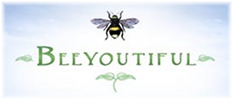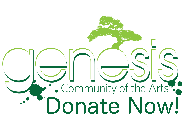Learning about Tunisia
November 6, 2008 in Africa, Travelogue, Tunisia
This time last week we were packing in Rome.
Today we are beginning to feel settled in Tunisia.
We’ve found our way around our section of town and mastered the art of negotiating cab fare. The children have settled nicely into the daily routine of school in the morning and swimming in the Mediterranean in the afternoon. They vie for the daily privilege of heading downstairs to purchase bread and milk from the little veiled lady who runs the store on the first floor. Tony has been working on various projects and I’ve been washing everything we own… a washing machine is a welcome luxury! We’ve even made our first friend, Peter Dobson, a local pastor and soon to be recipient of a medal of honor from Queen Elizabeth II, of England, for his service in Tunisia over the past thirty years.
It has been a week of resting and settling in. The landscape here is very different from the other places we’ve been… and not just geographically, but politically and culturally as well. Grinning from almost every building are large posters of the Tunisian president, in a paternal pose. Every intersection is ringed with bright red Tunisian flags and posters encouraging national pride.
Tunisia’s government is very popular with the people, according to Peter, and one of the most stable in Africa. Tunisia is an officially Islamic state, with 98% of the population being Sunni. They have worked very hard at encouraging a moderate practice of Islam by banning parties that are extreme, outlawing polygamy, enforcing education for all children, including girls, and expanding the freedom of women in ways unprecedented in the rest of the Islamic world. Here, women are not forced to wear any sort of covering (although many do) they may own businesses, have their own bank accounts, and apply for passports and travel freely without the permission or accompaniment of husbands or fathers. This makes Tunisia the most liberal muslim country with regard to women’s rights. Economically, the Tunisian government tries to balance socialism with private enterprise. For example, the basic food stuffs, bread, pasta, couscous etc. are subsidized by the government to make these items inexpensive and freely available to even poorer families. On the other side, private business ventures are encouraged and provide economic growth for the country. The average per capita income for Tunisian workers is $3000 USD per year. Tourism is a very important, and growing, part of the economy in Tunisia. Most of the tourists who visit the county come from Europe or Africa… we haven’t met any other Americans yet!
The thing that has been most striking to us so far has been the contrasts. On a walk down any given block in Sousse we may pass two or three women dressed just like we’ve seen in Europe, followed by another twenty in head scarves and one in a full black burka with sunglasses hiding her eyes. On the beach we sit next to tourists in string bikinis on one side, while a local woman in three layers of clothes and a head scarf swims, in the whole outfit, alongside the kids. On the walk back from the beach we dodge taxis turning around at high speed at the end of the cul de sac while watching the farmer who owns the little field behind the hotel plow his field with his donkey and hand held plow. Right behind the apartment building, next to the beach, is a little plot of land that has been fenced off with palm leaves. Inside is a tiny wooden shack, without windows, or plumbing or electricity, built of flotsam, it appears, where someone lives in the shadow of the condos rented by tourists. Its owner appears to be the guy who sells jewelry on the beach. With our judeo-Christian expectations from society it still surprises us to see a man, one of the construction workers on the building near by, performing his ablutions and praying on the mat he’s brought from home, right next to the construction zone oblivious to the cars and dogs passing by.
We’ve decided to stay a third month. We’ll be here through the end of January, if all goes as expected. We have an address, to which you can send us mail if you wish. Send me a note and I’ll give it to you. We need to stay out of Europe for 90 days in order to be readmitted on a new Schengen Visa. Besides that, it is warm and lovely here, the living is inexpensive, compared to Europe, and we have much to learn. Our goal for the three months is exactly that: to learn. In our world of factious splintering in every direction, along political and religious lines we want to develop in ourselves, and in our children, an understanding of the different ways of thinking and living in this part of the world. I would like to learn more about the muslim faith and practice, to make some friends with people who live life with a completely different set of presuppositions than I was raised with; and to have my children walk for a while in their world.
The children’s goal: to ride a camel.
 RSS - Posts
RSS - Posts

























